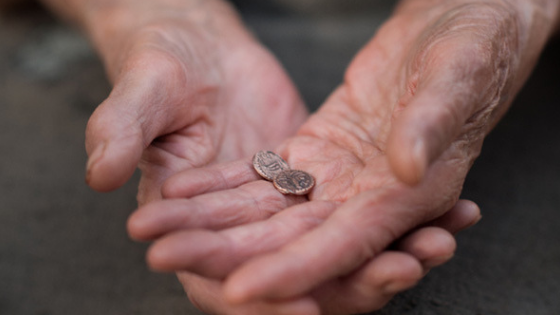
Sunday Gospel and Reading Commentary
The 26th Sunday of Ordinary Time
1st of October , 2017
Lectionary readings: Ez.18:25-28, Ps.125, Phil.2:1-11, Mt.21:28-32
The incident and teaching of Jesus in today’s Gospel follows his triumphal entry into Jerusalem and his going into the Temple where he drove out the sellers and stated, “My house shall be called a house of prayer.” (21:13). The chief priests and scribes were angered by his action and asked Jesus “By what authority are you doing these things?” (21: 23). At this point Jesus confronted them with a wager, “I will ask you a question. If you tell me the answer, then I will also tell you by what authority I do these things.” (21:24)
Confronted with the question, “Did the Baptism of John come from heaven?” (21:25) they were fearful to answer and admitted, “We do not know!” (21:27). It is at this point that Jesus told them a parable. These short stories were an integral part of his teaching because they concluded with the listener being confronted with a different way of looking at the situation. We can think of the story when Nathan told a parable to David and concluded with the words, “You are the man!” (2 Sam 22:1). At this point, David clearly saw his actions in a new and truer light.
The parable Jesus tells was of a father asking his two sons to go out and work in the vineyard. They are not identified as ‘elder’ and ‘younger’ but we might infer that the father spoke first to the elder. The first son responded disrespectfully saying, “I will not,” but later changed his mind and went, while the second son answered positively but failed to go. Jesus then posed the question to them, “Which of the two did the will of the father?” The chief priests and scribes answered, “The first.” (21:31)
We know that both had the same father which signifies that God is a common father to all humankind. The command to go out and work in the vineyard is given to all. One son did better than he said, his answer was not good but his actions were. Ultimately it is the one who does the will of the father who is esteemed by Jesus.
It was often the lowly and the outcasts who gathered around John the Baptist and these were seen by many as being unworthy and having little understanding. “Then Jerusalem was going out to him and all of Judea and the district around the Jordan; they were being baptized by him in the Jordan river as they confessed their sins.” (Mt. 3:5) The Jewish leaders had gone out to hear the preaching of John and did not respond positively to his teaching.
In the life of a disciple, one enters into a commitment of faith through Baptism. This commitment is of no benefit unless the person is prepared to fulfill that commitment. “An authentic relationship of faith asks for our complete and consistent response to God’s will both in what we profess and in how we live.” (Mueggenborg 290)
John’s message was to repent, to undergo a metanoia. This is essential in the life of a disciple so that Jesus can change our hearts and our thinking. We need to let go of our ego, to perceive the compassionate words and actions of Jesus and to set our priorities in line with his teachings. Since actions speak much louder than words, we need to ask ourselves the question – what faith are we professing by the lives we live? What is the creed of our life that speaks to others of our faith?
For Reflection and Discussion: [1] What do we need to better fulfill our commitments of faith? [2] Do the good examples of others help us to learn and to respond better? [3] Am I a good example of the faith I profess?
Bibliography: W.R.Farmer, The International Biblical Commentary, (Collegeville,1998) D.H Mueggenborg, Come Follow Me, ( United Kingdom, 2016)
This week’s teaching commentary was prepared by
Rita Kammermayer, nds, BA, B.Ed, Masters of Pastoral Studies, Jerusalem, Israel
Bat Kol alumni 2001
ritakammermayer@netscape.net
[Copyright © 2017]
……………………………………………………………
PLEASE NOTE: The weekly Gospel commentaries represent the research and creative thought of their authors, and are meant to stimulate deeper thinking about the meaning of the Sunday Scriptures. While they draw upon the study methods and sources employed by the Bat Kol Institute, the views and conclusions expressed in these commentaries are solely those of their authors, and do not necessarily represent the views of Bat Kol. Questions, comments and feedback are always welcome
………………………………………………………………
~~1983-2017~~
Bat Kol Institute for Jewish Studies, Jerusalem
“Christians Studying the Bible within its Jewish milieu, using Jewish Sources.”
Website: www.batkol.info; gill@batkol.info



